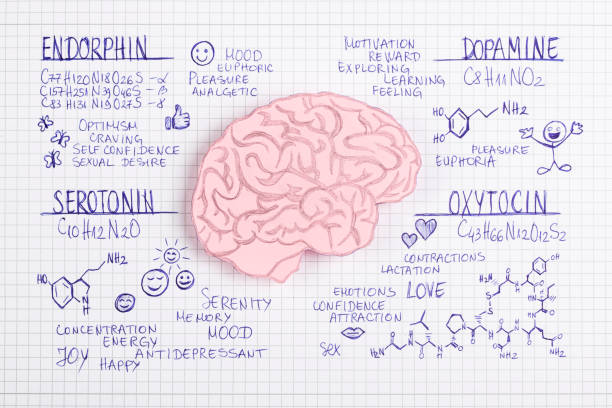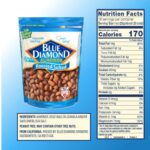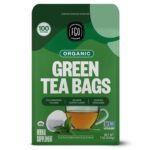Guide to Boosting Feel-Good Hormones Naturally in 2025
Guide to Boosting Feel-Good Hormones Naturally, Boost Feel-Good Hormones, Natural Happiness Boosters, Dopamine, Serotonin, Endorphins, Oxytocin, Norepinephrine, Cortisol, Activities for Emotional Well-being, Enhance Happiness with Simple Activities The Science of Joyful Hormones, Personalized Happiness Regimen, Wellness through Feel-Good Hormones, Elevate Mood Naturally, Holistic Approach to Emotional Well-being
Introduction

6 Hormones That Govern Our Joy: Decoding the Chemistry of Happiness
Happiness, a universal pursuit, has become a subject of both philosophical pondering and scientific investigation. Recent strides in neuroscience have illuminated the biological foundations of happiness, highlighting the crucial roles played by six key hormones: serotonin, dopamine, oxytocin, endorphins, norepinephrine, and cortisol. This article delves into the intricacies of these chemical messengers, exploring their functions and profound impacts on our lives.
Guide to Boosting Feel-Good Hormones Naturally, After going through the summary of the above article, here are some important aspects if followed, can bring positive impacts on happiness. Simply A Guide to Boosting Feel-Good Hormones Naturally.
1. Serotonin: The Mood Elevator

Often termed the “happy hormone,” serotonin regulates mood, sleep, appetite, and digestion. Adequate levels are vital for a positive mood, and imbalances may lead to symptoms of depression, anxiety, and sleep disturbances.
2. Dopamine: The Reward System

Associated with pleasure, motivation, and reward, dopamine reinforces behaviours leading to positive outcomes. Released in response to pleasurable stimuli, it fuels our brain’s reward system, motivating activities and contributing to overall well-being.
3. Oxytocin: The Love Hormone
Known as the “love hormone,” oxytocin promotes love, trust, and social bonding. Physical touch triggers its release, fostering empathy, relaxation, and stress reduction.
4. Endorphins: The Natural Painkillers
Produced in response to physical activity, pain, and stress, endorphins act as natural painkillers. They induce euphoria, relaxation, and stress reduction, contributing to overall well-being.
5. Norepinephrine
As a neurotransmitter and hormone, norepinephrine regulates mood, alertness, and arousal. Its release increases during stress, preparing the body for the “fight or flight” response. Imbalances are linked to mood disorders.
6. Cortisol
Known as the “stress hormone,” cortisol mobilizes energy in response to stress. Chronic elevation can impact mood, sleep, and immune function. A balanced lifestyle is crucial for optimal cortisol regulation.
7. Activities That Propel Happiness
Engaging in activities that stimulate these hormones is a personalized journey. Recommendations include cuddling, exercise, prioritizing sleep, maintaining a healthy diet, mindfulness, meditation, cultivating positive relationships, seeking professional help when needed, aromatherapy, massage, intimacy, enjoying feel-good music, spending time in nature, taking power naps, and indulging in laughter through comedy.
Boosting joy-inducing hormones involves a holistic approach that includes a combination of lifestyle factors, diet, and various practices. Here are some household items, herbs, and spices that may contribute to the enhancement of six key hormones associated with joy: dopamine, serotonin, endorphins, oxytocin, norepinephrine, and cortisol.
8 . Dopamine:
- Bananas: Contain dopamine precursors like tyrosine.
-

Almonds. - Almonds: A source of tyrosine, supporting dopamine production.
- Dark Chocolate:https://amzn.to/3FXTNz1 Contains phenylethylamine, associated with pleasure and happiness.

Dark Chocolate 
9 . Serotonin:
- Turkey: https://amzn.to/47vru6RRich in tryptophan, a precursor to serotonin.

Turkey - Spinach: Contains magnesium, which supports serotonin production.
- Seeds (Pumpkin, Sunflower): High in tryptophan.
10 . Endorphins:
- Dark Chocolate: Triggers endorphin release.
- Chili Peppers: Contain capsaicin, known to stimulate endorphin production.
- Exercise: Physical activity is a natural way to release endorphins.
11 . Oxytocin:
- Hugging or Cuddling: Physical touch boosts oxytocin levels.

Hugging & Cuddling - Socializing: Positive interactions with friends and family stimulate oxytocin.
- Essential Oils (Lavender): Aromatherapy can influence oxytocin release.
12 . Norepinephrine:
- Green Tea:https://amzn.to/3SH6J44 Contains L-theanine, which may increase norepinephrine.

Green Tea - Rosemary: An aromatic herb that may have stimulating effects.
- Cold Showers: Can activate the sympathetic nervous system, releasing norepinephrine.
13. Cortisol (Balancing):
- Herbal Teas (Chamomile): Known for their calming effects.
- Adaptogenic Herbs (Ashwagandha, Rhodiola): Help the body adapt to stress.
- Regular Sleep: Consistent, quality sleep helps regulate cortisol.
14 . General Tips for Hormonal Health and Joy:
- Omega-3 Fatty Acids (Found in Fish): Support overall brain health.
- Probiotics (Yogurt, Fermented Foods): Gut health is linked to mood.
- Sun Exposure: Enhances Vitamin D production, impacting mood.
Important Note: While these items may contribute to overall well-being, it’s essential to maintain a balanced and varied diet. Individual responses to foods can vary, and dietary changes should be approached with consideration for personal health conditions and dietary restrictions. Additionally, lifestyle factors like regular exercise, stress management, and adequate sleep play a crucial role in hormonal balance and overall joy. Consultation with a healthcare professional or nutritionist is recommended for personalized advice.Unlocking Happiness: A Comprehensive Guide to Boosting Feel-Good Hormones Naturally
FAQs
- Are there other hormones that contribute to happiness?
- Yes, several other hormones play roles in happiness, and a holistic approach to well-being involves considering various factors.
- How can I increase my hormone levels naturally?
- Incorporating activities like exercise, spending time in nature, and adopting a healthy lifestyle can naturally boost hormone production.
- What are the signs of hormone imbalances affecting happiness?
- Persistent low mood, irritability, fatigue, sleep disturbances, and changes in appetite or sex drive may indicate hormone imbalances.
- What are the signs of low-happiness hormones?
- Depressed mood, anxiety, irritability, fatigue, sleep problems, and loss of interest in enjoyable activities are signs of low happiness hormones.
- Best ways to boost happiness hormones?
- Engage in regular exercise, prioritize quality sleep, cultivate meaningful connections, participate in enjoyable activities, and adopt stress management strategies.
Conclusion
In understanding the intricate dance of serotonin, dopamine, oxytocin, endorphins, norepinephrine, and cortisol, we unlock the secrets to cultivating lasting joy and contentment. By embracing activities that promote the release of these happiness hormones, we empower ourselves to lead lives filled with vitality and fulfilment. Happiness, it seems, is not merely an elusive pursuit but a symphony orchestrated by our chemical composition.
Disclaimer: The contents of this article are intended to raise awareness about common health issues and should not be viewed as sound medical advice for your specific condition. You should always consult with a licensed medical practitioner before following any suggestions outlined in this article or adopting any treatment protocol based on the article’s contents.
Understanding Anger : A Comprehensive Guide in 2025

 .
.